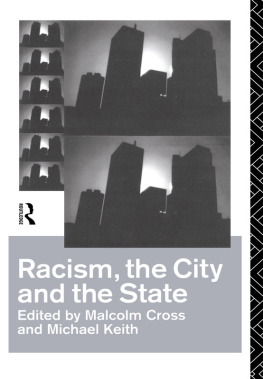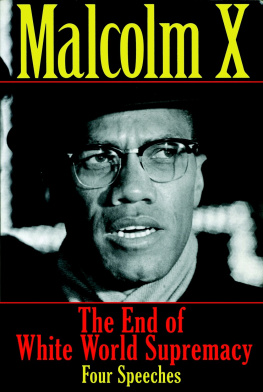First published in 1991 by The Falmer Press
This edition first published in 2018
by Routledge
2 Park Square, Milton Park, Abingdon, Oxon OX14 4RN
and by Routledge
711 Third Avenue, New York, NY 10017
Routledge is an imprint of the Taylor & Francis Group, an informa business
1991 British Sociological Association
All rights reserved. No part of this book may be reprinted or reproduced or utilised in any form or by any electronic, mechanical, or other means, now known or hereafter invented, including photocopying and recording, or in any information storage or retrieval system, without permission in writing from the publishers.
Trademark notice: Product or corporate names may be trademarks or registered trademarks, and are used only for identification and explanation without intent to infringe.
British Library Cataloguing in Publication Data
A catalogue record for this book is available from the British Library
ISBN: 978-1-138-49942-3 (Set)
ISBN: 978-1-351-01463-2 (Set) (ebk)
ISBN: 978-0-8153-4824-5 (Volume 12) (hbk)
ISBN: 978-1-351-16756-7 (Volume 12) (ebk)
Publishers Note
The publisher has gone to great lengths to ensure the quality of this reprint but points out that some imperfections in the original copies may be apparent.
Disclaimer
The publisher has made every effort to trace copyright holders and would welcome correspondence from those they have been unable to trace.
Work and the Enterprise Culture
Edited by
Malcolm Cross and Geoff Payne
Explorations in Sociology No. 38
In conjunction with the British Sociological Association
UK | The Falmer Press, 4 John Street, London WC1N 2ET |
USA | The Falmer Press, Taylor & Francis Inc., 1900 Frost Road, Suite 101, Bristol, PA 19007 |
British Sociological Association 1991
All rights reserved. No part of this publication may be reproduced, stored in a retrieval system, or transmitted in any form or by any means, electronic, mechanical, photocopying, recording or otherwise, without permission in writing from the Publisher.
First published 1991
British Library Cataloguing in Publication Data
Work and the enterprise culture.
1. Great Britain. Entrepreneurship Socioeconomic aspects I. Cross, Malcolm II. Payne, Geoff
338.040941
ISBN 1-85000-799-3
ISBN 1-85000-800-0 pbk
Library of Congress Cataloging-in-Publication Data is available on request.
Jacket design by Caroline Archer
Typeset in 10.5/12 Bembo by
Graphicraft Typesetters Ltd., Hong Kong
Printed in Great Britain by Burgess Science Press, Basingstoke on paper which has a specified pH value on final paper manufacture of not less than 7.5 and is therefore acid free.
Malcolm Cross and Geoff Payne
The continuity of Conservative Governments under Margaret Thatcher during the 1980s has led to us seeing an apparent cohesiveness in the character of that decade. The rhetoric of public discourse has been focused on recovery from recession, getting the economy moving and creating a new enterprise culture to replace state controls and supposed inefficiency. Behind the facade of that coherence lies a period of economic and social change which has in reality been discontinuous, contradictory and disorganized. Tremendous changes have indeed taken place, but in complex societies political forces, demographic trends, cultural transitions, market pressures, technological innovation, and organizational restructuring do not all fit together neatly. One of the key tasks of the sociologist is to disentangle such components of large-scale, social processes, so that a clearer understanding of events can be constructed to replace conventional or ideological wisdoms.
This task is inevitably seen by those with a vested interest in the conventional wisdom as negative, or even subversive. At one level it is. If people buttress their own positions with selective accounts and simplistic appeals to vague symbols of legitimation a problem that all politicians (not to mention others) have then a social science perspective can only be perceived by them as threatening. At a different level, however, the social science project is marked by a concern for clarity, for better comprehension, for recognizing alternatives, and by implication at least for the construction of new and better policies. It follows that when the contributors to this volume raise questions about how the enterprise culture actually has been manifested in the world of work, their prime concern is not to mount an ideological or narrow party political attack on enterprise, but rather to explore in specific contexts what has been happening in the 1980s.
The changes of the 1980s did not only alter the context of work, they also enhanced new forms of unevenness in both decline and renewal. The decade witnessed the increased significance of both space and time as boundaries of paid employment. The North-South divide is one example of the former; the crisis of the inner cities is another. Similarly, work became increasingly concentrated within a shorter span of life. There was a redefinition of working age as young people were excluded from work and as redundancies and early retirement sliced deeply into cohorts of the over 50s. In contrast to this early exclusion of young people from the labour market, the end of the decade saw a shortage of young people in the population with concomitant changes in employers recruitment strategies as they sought to compete for them and for the older women re-entering the labour market after child-rearing.
As firms radically restructured to survive, they dramatically altered the labour process and the form in which work would be available. Flexible, part-time labour grew at the expense of more stable, full-time employment. With this change has come a renewed segmentation by gender as the new jobs are carefully tailored to low cost, malleable, and largely non-unionized female workers. Similarly, the relocation of plants outside high cost and increasingly inaccessible inner cities has had profound effects on the composition of those able to take advantage of the economic upturn. British people of Caribbean and Asian origin are still disproportionately concentrated in regions and areas of major decline, and therefore their lives have been made even more vulnerable by the coming of Enterprise Britain.
On the other hand, the decade of the 1980s was also the one in which equal opportunity and anti-discrimination legislation of the mid 1970s might have been expected to have an effect. The world of work does not exist in isolation from wider cultural and political processes. The exclusion of young people from the labour market during the earlier years of recession was matched by a rich variety of training and work experience schemes introduced by government legislation and promoted by unprecedented publicity. The question arises, as to how well these attempts at engineered social change have coped with the renewed segmentation by gender and race which have flowed from economic re-organization. At the same time, the ways in which sociologists study and think about these things have been changing, even more than in sociology in general. Sociologists of work have traditionally focused on class differences, for it is within that domain that relations of production are engendered. It became clearer, however, in the 1980s that class did not capture all that was important in the changing world of work. The salience of gender and race have in particular broadened our perspectives and added to our analytical repertoire. Age and the importance of locale are other examples of this growing sophistication. Ideas developed in other branches of sociology have cross-fertilized into what has hitherto been a narrower area: an analysis of graduate employment or the role of women in the miners strike become newly relevant to what we mean by work.













